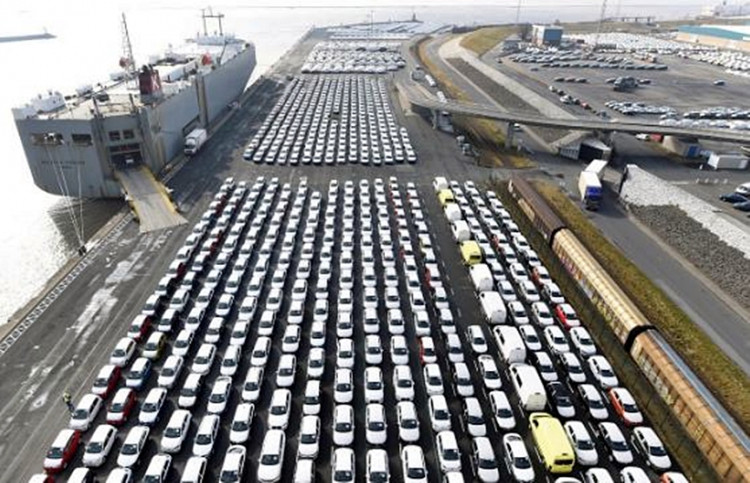On the same day, President Donald Trump announced the end of preferential import treatment for Indian products, Germany's powerful automakers were scrambling to ensure Trump doesn't push through with a threat to impose a 35 percent tariff on every car exported from the European Union (EU).
"It is a critical situation for us," said Herbert Diess, CEO of VW Group, about the import duty threat. "Mostly, our premium brands here in Germany are depending on the import market of the U.S. Audi and Porsche have significant market share there, so this is a threat."
VW Group consists of Volkswagen, Porsche, Audi, and Seat among other brands.
European automakers were one in defending free trade, which they say is severely threatened by Trump. Free trade is defined as international trade left to its natural course without tariffs, quotas or other restrictions.
"We are for free world trade, but in the end (it) depends on politics. We have a very true fanbase in the U.S. so we will see what will happen," said Porsche CEO Oliver Blume.
BMW CEO Harald Kruger said the auto industry has created wealth, investment and jobs and this came about thanks to free trade policies.
"Our business model is clearly based on free trade and we have shown and demonstrated by our biggest plant in South Carolina that export-business and free trade business creates wealth and jobs and high investment. And the answer to the current situation is flexibility," said Kruger.
Andy Palmer, CEO of British luxury carmaker Aston Martin, said U.S. tariffs will definitely boost prices. "All of the luxury manufacturers are based in Europe, we all have the same problem. What that means is that if there is a tariff it'll go through in pricing," he said.
Audi Chairman Bram Schot struck tried to sound optimistic against the prevailing pessimism. He said he doesn't see the potential for tariffs on European cars as something to worry about.
"I don't see them as a threat, I see it as a challenge, we are transforming the business and it's one of the things we have to cope with, so I don't see that as a big issue," he said.
In December 2018, top executives from Germany's leading automakers visited Washington D.C. hoping to deter potential tariffs on U.S. imports of luxury cars.
Bosses from Daimler AG, BMW AG, and the Volkswagen Group met White House economic adviser Larry Kudlow to discuss U.S. efforts to significantly slash imports of luxury cars from Europe. German car bosses are trying to get on Trump's good side by revealing plans to increase the proportion of components produced in the United States.
German carmakers are among the largest net exporters of vehicles to and from the United States. BMW and Mercedes build most of their SUVs in U.S. plants and import luxury limousines built in Germany to America.





